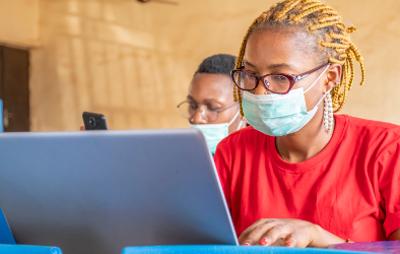This research examines the extent to which teachers across all levels of education in Cameroon leverage technology to promote quality and inclusive delivery of lessons in Cameroon during the COVID-19 pandemic. It focuses on educational technology as an overarching concept within which global and domestic education objectives can be achieved, measured, and reformed in case of another global pandemic or any high-risk public health issues. The dire consequences of the deadly COVID-19 virus on education in Cameroon and unprecedented strategies employed by the ministries of education present a comprehensive rationale for this study. To collect relevant data for the analysis, the authors used a cross-sectional mixed research method, a combination of qualitative and quantitative approaches in the research, analysis, and reporting in an integrative manner. Data was gathered from a small sample of 100 respondents using surveys that integrated both closed and open-ended questions. The study revealed that technology played a key role to facilitate the teaching-learning process during the COVID-19 pandemic. Given that the government put in place policies to activate the latter, academic institutions and teachers took advantage of this, complementing this novel approach, where legally and practically doable, to the traditional face-to-face approach that was predominant before COVID-19. This study concludes that there is a need to improve the capacities of teachers to be capable of adequately utilizing technological tools to achieve teaching/learning goals in times of crisis.


Leave a Reply